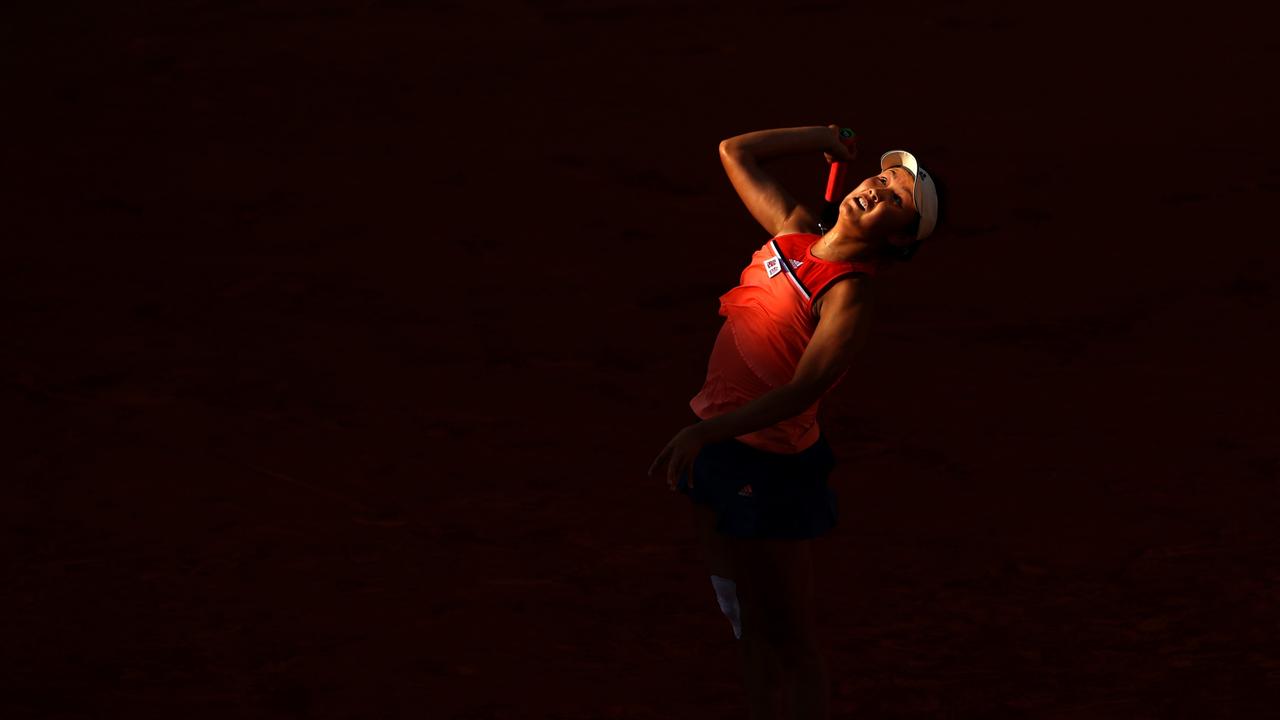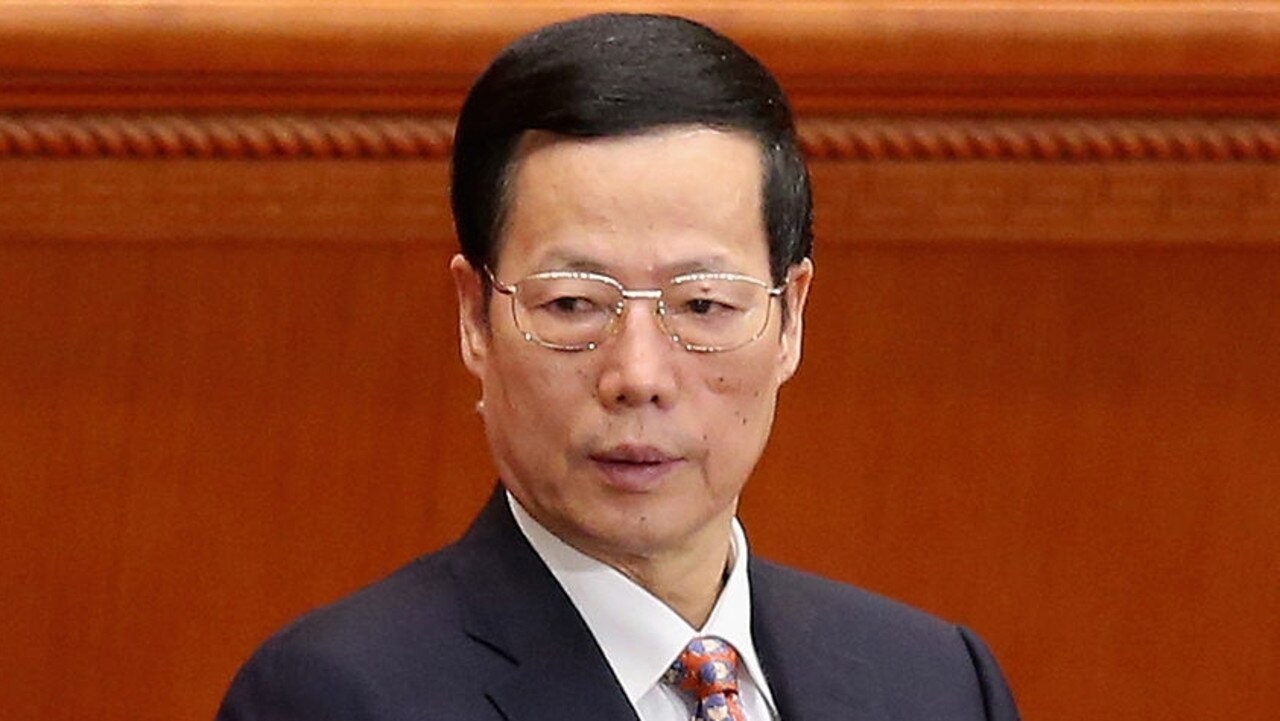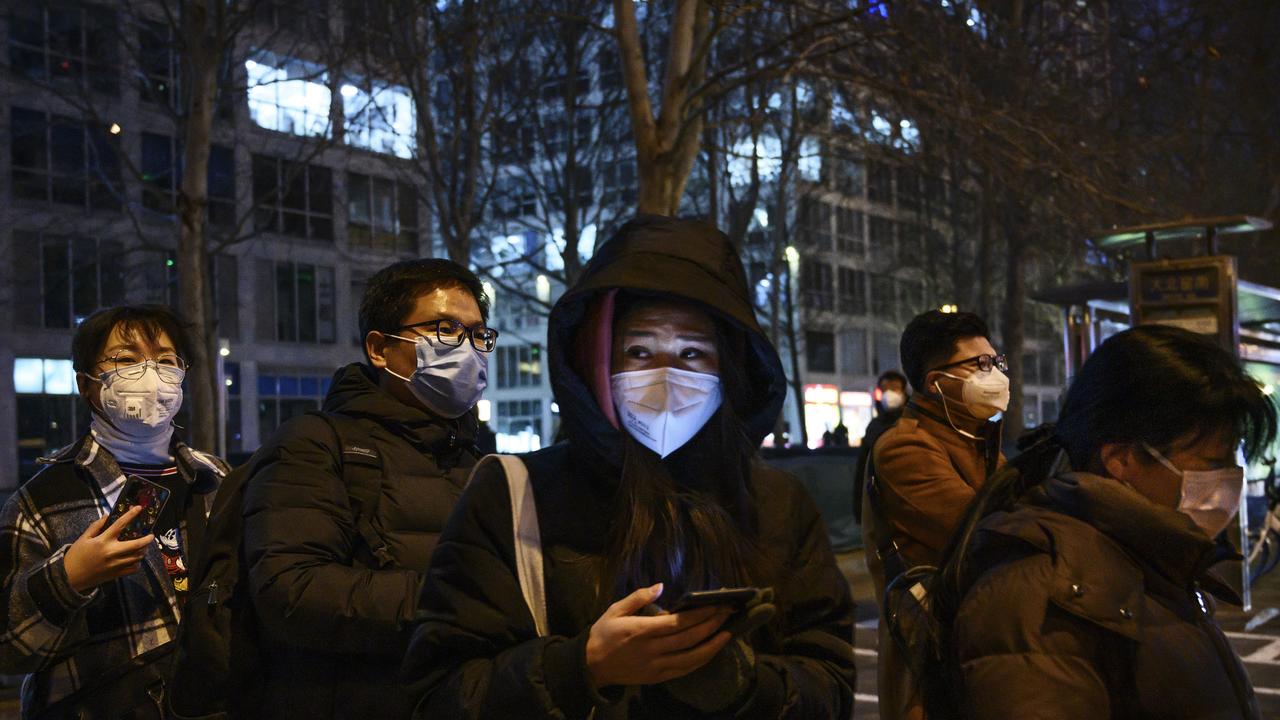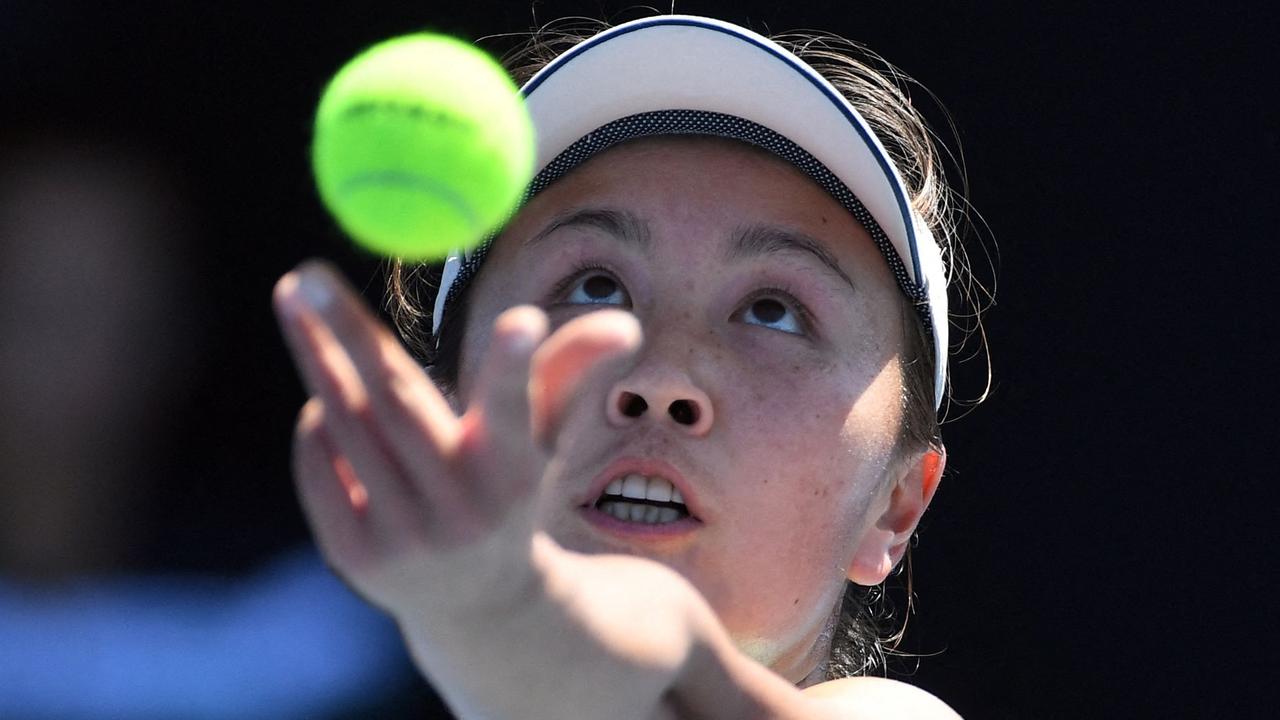Missing tennis player Peng Shuai exposes China’s brutal reaction to #MeToo
Disappeared tennis player Peng Shuai is just the tip of the iceberg of the murky goings-on in China when it comes to women.
The plight of famous tennis player Peng Shuai is just the tip of the iceberg. China’s #MeToo rebellion against sexual assault is being quashed. And the crackdown is widespread and brutal.
The official party line sounds promising.
China’s ruling Communist Party insists it’s committed to gender equality.
After all, the founding father of the People’s Republic of China – Chairman Mao Zedong – proclaimed that “women hold up half the sky”.
And some of its track record is outstanding. There’s virtually no gender gap in national rates of education. There’s a very strong percentage of women in the workforce.
But, it appears, men remain more equal than women. Especially now the Party wants lots more babies.

State-controlled media is suddenly very concerned about “family values”. At least when applied to women. It says adultery is evil. Children are paramount. Care is a core social virtue.
If you are a woman.
That’s the tragic tale behind Peng’s disappearance. And many, many other desperate appeals to have sexual predators brought to justice.
No room for #MeToo
There’s no woman in the Chinese Communist Party’s elite inner circle – the seven-member Politburo Standing Committee.
The next level down, the 25-person Politburo, has just one – Vice Premier Sun Chunlan. And the highest parliament of the land, the 204-member Central Committee, has about 10.
It’s as tough an old-boys club as they come.
Peng, 35, was the first Chinese tennis player to top the world when she became doubles number one in 2014.
Her alleged abuser is Zhang Gaoli, 75. He held one of China’s most powerful positions – vice-premier – between 2013 and 2018. He also served on the Politburo Standing Committee.
Unverified post from Chinese tennis star Peng Shuai, taken down from Weibo within minutes, in which she claims (again unverified) that she was assaulted by former Vice premier Zhang Gaoli, before willingly becoming his mistress. Highest public #MeToo allegation in China pic.twitter.com/lPU8fQ9vbx
— Emily Feng 冯哲芸 (@EmilyZFeng) November 2, 2021
“I know that for someone of your stature, Vice Premier Zhang Gaoli, you have said that you are not afraid,” Peng wrote in a viral social media post that has since been erased from the internet. “But even if it is like throwing an egg against rock, or if I am like a moth drawn to the flame, inviting self-destruction, I will tell the truth about you.”
As with the rest of the world, the #MeToo movement has brought down several high-profile Chinese journalists, academics and corporate high-flyers. But not anyone from China’s ruling Communist Party.

And, given the overwhelming effort by state censors to kill Peng’s story, it isn’t likely to do so. Peng has disappeared. Just as thoroughly as her internet profile and public complaint.
“I have not heard of this issue, and it is not a diplomatic question,” a spokesperson for China’s foreign ministry retorted to questions from foreign press about the international star’s fate.
But Peng’s plight has struck a discordant chord with China. The #MeToo debate has flared again – despite having to constantly adapt fast to dodge the CCP’s efforts to clamp down upon it.
Women continue to step forward with stories of abuse and calling out their abusers. And they’re building on the courage of the women who went before them.
Xian Qi Liang Mu
Communism hasn’t completely rewritten Chinese culture. The ancient Confucian ideal of “xian qi liang mu” (good wife, loving mother) remains strong.
This is why, as with the traditions of the West, many social inequalities remain unaddressed.
But, with mounting concern over China’s rapidly ageing population, “xian qi liang mu” now offers a “family values” justification for a dramatic policy change.
And that’s putting the Communist Party in direct opposition to the growing #MeToo movement.
The CCP abandoned its one-child policy in 2015 to combat falling birthrates. Since then, birthrates have only continued to decline.
The number of unmarried men also remains a serious issue. China’s one-child families tended to prefer the prospects offered by male offspring.
Now, with so many highly educated young women in the workforce, China’s having to grapple with the added tendency of many women to choose to delay marriage and child-bearing.

It represents a significant success of Communist Party policy. Especially as China has 34.9 million more men than women, according to its latest census.
The revolutionary-era goal of eliminating China’s old “mistress culture” of concubines and prostitution appeared to have significant success. But, under market reforms in the 1980s enabling “some to get rich first”, the gender power imbalance seems to have made a comeback.
Chairman Xi Jinping’s government is again pushing family values as a core component of its new Communism with Chinese Characteristics concept. But those family values mainly apply to women.
State-controlled media is awash with the “benevolence” of the rigid Confucian ideal. Women are about caring for children and the elderly. Their primary aspiration should be motherhood. Or so the new Party line goes.
“Without women, there would be no continuity of the human race or human society,” Xi told an International Women’s Day address earlier this year.
Which is why “Xian qi liang mu” is now one of Xi’s “socialist core values”.
Keeping it in the family
“Peng Shuai’s revelations have allowed us to see the reality of China’s top leaders as never before, to look behind the trappings of power that hid their excessive abuse of power, their corruption and their terror,” writes New York-based Chinese feminist Lu Pin.
“In fact, they have always been this rotten and depraved, including continuously exploiting women, only it’s always been concealed. So, ‘speaking up’ is incredibly important.”

Peng’s allegations, as with most stories of sexual assault, are complicated.
The star tells how she played tennis with Vice Premier Zhang and his wife. She was then invited to their home, where Zhang allegedly pressured Peng for sex.
“I was so scared that afternoon,” Peng wrote in her Weibo post. “I never gave consent, crying the entire time.”
A Communist Party guard stood outside the door as the assault took place, she said. Afterwards, Peng says she felt compelled to continue a sexual relationship with the powerful Vice Premier.
It’s a taboo topic. The Communist Party presents itself as China’s moral arbiter that can do no wrong.
What results is an unfortunately familiar story. The same roadblocks appear in Australian political and corporate sexual assault scandals. These men, like Zhang, are usually powerful.
These men, like Zhang, are often very well connected. And the rules of the game have been written to support such men. A tech mogul. A leading professor. A state-media anchor. These are among the high-profile cases of sexual assault to emerge recently in China. But only a pop star has suffered any formal sanction – possibly because of his ties with Taiwan.
Meanwhile, the Communist Party insists adultery is a crime against the state. Which is why high-profile members of the Communist Party family can’t be seen to commit it.
‘Everything is fine’
This week, China’s English-language TV network, CGTN, published an alleged email from Peng that insisted she was “not missing, nor am I unsafe”.
“I’ve just been resting at home, and everything is fine,” the text reads.
Chinese tennis star Peng Shuai has sent an email to Steve Simon, the WTA Chairman & CEO, CGTN has learned. The email reads: pic.twitter.com/uLi6Zd2jDI
— CGTN (@CGTNOfficial) November 17, 2021
It goes on to dismiss the sexual assault allegations against Vice Premier Zhang as “not true”. Nor did they originate from Peng, it asserts.
The erasure of Peng’s social media profile, the suppression of the debate it started, and the sudden appearance of a denial follow a well-established pattern.
The #MeToo movement there was ignited in 2018 by Luo Xixi, a former student of the nation’s leading defence university – Beihang University – in Beijing. She accused a leading doctoral professor of harassing her.
A student at Peking University quickly followed suit, issuing a petition demanding formal channels of complaint be established to address such assaults.
It went viral. Soon the debate was alive in 30 major universities across the country.
“A single spark can start a prairie fire. Even as a student, I should try my best to bring light and warmth to my surroundings,” she said in the social media post.
Then, suddenly, it was deleted. The petition was wiped from the internet.
It represented a popular movement. However, as it was not a Communist Party sanctioned campaign, it had to be suppressed.
Now the whole #MeToo movement has become the frontline of a backlash against Chinese feminism. Any attempt to elevate women beyond “xian qi liang mu” faces censorship for contradicting Xi Thought. Hordes of online trolls – strangely untouched by Communist Party censors – roam the internet seeking to harass and intimidate any woman who steps out of place.
It may be the Communist Party’s greatest social engineering challenge yet. China’s women are angry.
Peng’s allegations are still circulating widely. Screen captures are being reposted under ever-changing hashtags without any obvious cue to trigger even an AI censor’s watchful eye. “Even if it’s like throwing eggs at a rock, or a moth flying into a fire, seeking my own destruction, I will tell the truth about what happened with you,” she wrote.
Jamie Seidel is a freelance writer | @JamieSeidel






